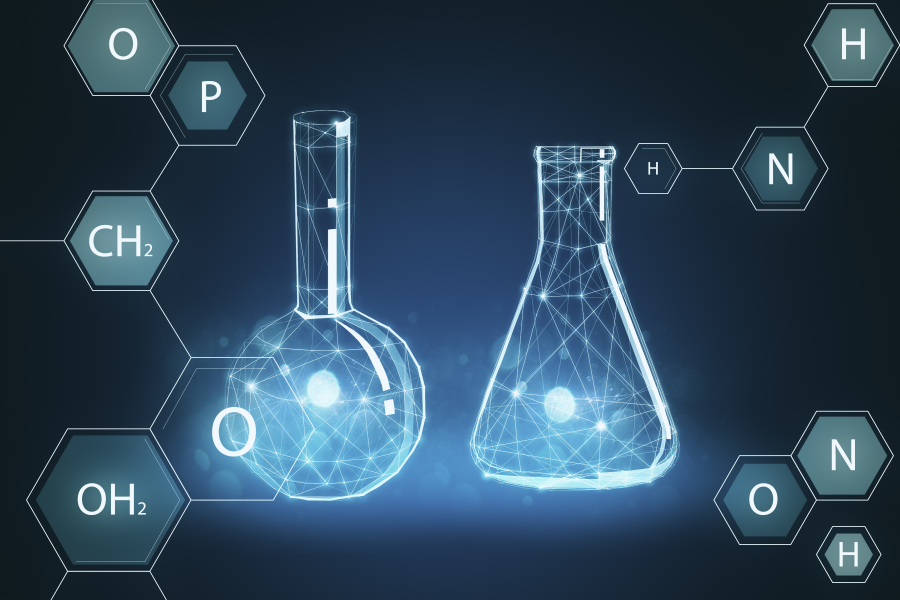- PIs: Chao Zhang - Associate Professor, School of Computational Science and Engineering, Georgia
- Tech Co-PI: Rampi Ramprasad - Professor, School of Materials Science and Engineering, Georgia Tech
Why It's Important: Chemical discovery is extremely challenging: the chemical space contains over 1060 possible molecules, yet only ~108 have been discovered. Traditional discovery cycles – hypothesis generation, virtual screening, synthesis, testing - take months or years per iteration and are expensive and largely manual. Current AI methods struggle with the multi-modal nature of chemical data (text, 2D graphs, 3D structures) and lack autonomous reasoning capabilities for multi-step planning and iterative refinement. While Large Language Models show promise for chemical tasks, they cannot effectively integrate diverse chemical modalities and underperform in complex tasks requiring synthesizability-aware design. A truly agentic, multimodal AI system could revolutionize molecular discovery by autonomously navigating chemical search spaces, generating testable hypotheses, and iteratively refining approaches based on feedback.
 Our Approach: MM-ChemAgent aims to create a new foundational agentic multi-modal model for autonomous chemical discovery. Our approach combines four key innovations:
Our Approach: MM-ChemAgent aims to create a new foundational agentic multi-modal model for autonomous chemical discovery. Our approach combines four key innovations:
Enhanced Chemical Knowledge: Continued pre-training of open-source LLMs using a curated ~10B token corpus from chemical literature, patents, and scientific databases to embed deep domain expertise
Multi-Modal Understanding: Training the model to seamlessly integrate text descriptions with 2D molecular graphs and 3D atomic structures through unified representations, enabling cross-modal reasoning about structure-property relationships
Agentic Reasoning via RL: Reinforcement learning fine-tuning on multi-step chemical reasoning tasks to develop autonomous capabilities including hypothesis generation, tool use, experimental planning, and reflective self-correction
Evaluation & Impact: MM-ChemAgent will be evaluated on molecular optimization, retrosynthesis planning, and automated ML model design using established benchmarks plus applications in polymer design. All outputs will be open-sourced to benefit the research community. Once validated, this framework will guide autonomous lab development, ultimately enabling self-driving laboratories for scientific discovery and strengthening Georgia Tech’s leadership in AI for science.
